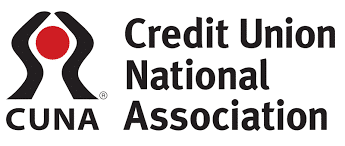
Advancing Advocacy, Public Policy, Government Relations and Social Impact with Online Community
Online communities are a powerful tool for an association’s advocacy, public policy, and government relations efforts.
Associations play an important role in advocating for their industry’s interests, not just for their individual members. Advocacy, public policy, government relations, and social impact initiatives also help your association attract and retain members, especially incoming generations looking for purpose and meaning in their work.
Traditionally, social impact and advocacy programmes have involved physical meetings, phone calls, and direct mail campaigns limited to fee-paying members of the association. In today’s digital age, however, online communities have become an essential tool for associations to engage whole-of-industry approaches to advocacy. Employing online communities as part of your association’s advocacy programme can expand your impact, lead to more successful lobbying, and improve your efforts to seek government funding. This is because of three key benefits of using an online community for advocacy programmes:
- Increased awareness and reach.
- Increased engagement and widened input.
- Increased reputational impact.
Examples
Community Increases Awareness of Advocacy Issues
As you seek to influence industry decision-makers or regulations, having an online community component of your advocacy efforts helps you enable all the stakeholders involved in that advocacy campaign to share research, trends, reports and resources. The community is also an ideal place to collaborate with and educate others.
With a community, you have another channel for communication. Though you’ll likely still rely on email for some outreach, you can also share information in a centralised hub, which members and stakeholders can begin to check-in on a regular basis. Communication also becomes driven not just by your association, but also by your members and community users – they might share news you didn’t see yet or provide perspectives you haven’t thought of. And your community platform, like Higher Logic Thrive, makes all this easier to manage:
- You can aggregate community updates in digest-style emails to keep community activity top of mind.
- You can maintain an ongoing resource library of assets, educational content, statements/proposals, form letters, etc. that users can refer to and use to help them take action.
- In the case of cause-related advocacy, an online community supports people sharing their lived experiences and personal storeys, which puts the issues into context for other community members and helps you build the emotional component of your campaign.
By creating a dedicated space for members to discuss advocacy issues, associations can help to create a sense of urgency and encourage action.
Community Increases Engagement with Advocacy Efforts
Increasing engagement of your broader stakeholder segments is critical to the success of your advocacy efforts. We know how powerful online communities are for connecting your members and providing them with a platform to share their ideas, concerns and feedback – communities similarly make your members and industry more invested in your association’s advocacy efforts.
The online community provides a place for stakeholders to interact with each other, share resources and experiences, and provide support, regardless of their relationship with the association. Having a safe and secure environment in turn increases the depth and breadth of engagement. And, importantly, those who have been (or who will be) directly impacted by your advocacy efforts are included in the conversation and in your planned actions and solutions.
Your community is also a valuable mechanism for collecting data on your stakeholders’ needs and interests and encouraging feedback on advocacy initiatives. Higher Logic Thrive’s community tools, for example, allow you to:
- Conduct polls within the community.
- Track popular topics and conversation threads as a guide point for topics you might want to focus on.
- Identify active and engaged individuals whose capability and capacity you can leverage to drive advocacy efforts forward.
The information you collect can be really powerful as you shape your campaigns and strategies.
Community Scales Advocacy Impact
With an online community, you have the potential to drive greater impact than traditional advocacy methods. You’re better positioned to foster a collective voice that can be used to advocate for change. Your online community also makes it easier to organise grassroots campaigns and mobilise members to act. In Higher Logic Thrive’s community platform you can:
- Include high-visibility calls to action at the top of your community when you have a time sensitive or high-priority action item.
- Maintain an event calendar so community users can keep track of upcoming opportunities to get involved.
- Create threads requesting comments on, or sharing drafts of, your association statements or proposals
Online communities are often more cost-effective than traditional advocacy methods, which lets you do more with your existing resources. They are relatively inexpensive to set up and maintain and they enable you to reach a broader audience with less expense than physical meetings or direct mail campaigns. Members can access the community from anywhere, at any time – and so can you when you want to share updates. This makes it easier for you to connect with the people supporting your advocacy efforts, share information and collect data around your advocacy programme to support any reporting you need to provide to the government.
Community and Advocacy Go Hand in Hand
Online communities provide a powerful tool for associations to connect with their members and drive advocacy efforts forward. And instead of your resources and past work getting lost to time because they were inconsistently stored or shared completely ad-hoc, you’ll have legacy information and conversations that the association owns and that advocacy leaders can continue benefiting from in the long term.
By fostering engagement, increasing awareness and amplifying impact, online communities are an ideal tool for associations looking to achieve their advocacy, public policy, government relations, and social impact goals more effectively and efficiently.






